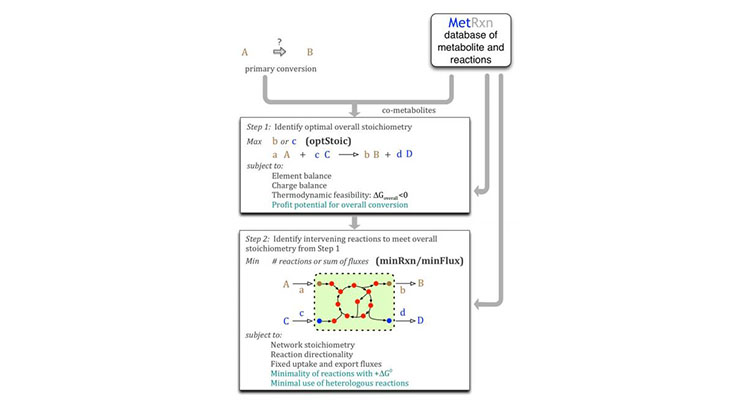Computationally Designing Metabolic Conversions
ID# 2015-4315
Technology Summary
The subject invention provides a computational framework for designing optimum stoichiometry and intermediate metabolic reaction steps for conversion between a source and target metabolite. This a pathway design tool that optimizes the overall stoichiometry by exploring exhaustive co-reactant/co-product combinations. The invention can identify non-intuitive solutions for driving forward thermodynamically unfavorable conversions. Apart from identifying intervening reactions, this software also ranks the various identified designs based on factors like overall carbon/energy yield, network size and free energy of change. The invention also includes economic considerations implied by the prices of the reactant/product molecules.
Application & Market Utility
Existing procedures for de novo pathway design trace pathways connecting a single substrate to a single product, however metabolic conversions do not generally involve linear paths from substrate to product. Therefore, there is a need for a computational procedure that can take into account all the factors acting behind the complex metabolic reactions leading to formation of products. This invention will be used to engineer optimal pathways for harnessing metabolic machinery to convert feedstock substrates to a growing range of products.
Next Steps
Seeking research collaboration and licensing opportunities.

